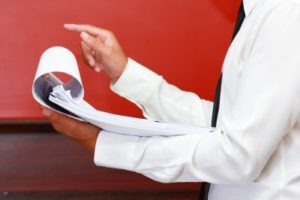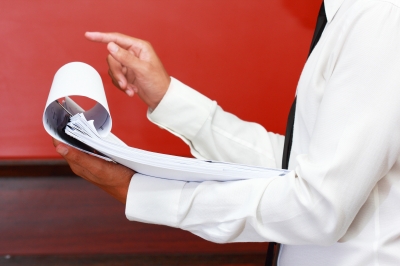 Philippine Customs Commissioner Nicanor Faeldon said he will soon issue a list of erring importers and customs brokers to be delisted or suspended by the Bureau of Customs (BOC).
Philippine Customs Commissioner Nicanor Faeldon said he will soon issue a list of erring importers and customs brokers to be delisted or suspended by the Bureau of Customs (BOC).
In a media briefing on December 21, Faeldon said thousands of erring importers and customs brokers “who have practiced illicit trade” will be delisted.
“We do not need them,” Faeldon noted, adding that the list is currently being reviewed and finalized for release to the public soon.
BOC acting spokesperson for Intelligence and Enforcement Groups Neil Anthony Estrella said included in the list are companies that have previous violations and those proven to be non-existent upon random site visit.
Erring companies will be immediately suspended once the initial list is out, Estrella said, but noted that suspension of some non-existent companies has already started.
Suspension, he noted, might be permanent unless lifted by BOC. He added that BOC will “always abide with the due process” in delisting and suspending erring importers and customs brokers.
Asked why there are still ghost companies when the accreditation process was amended in 2014 supposedly to weed out non-compliant importers and customs brokers, Estrella said “that is where corruption comes.”
“We’re not saying it’s [accreditation process] not effective. I think there are still some loopholes. There might be weaknesses that we can still improve [on],” he said.
He added that they might recommend a new accreditation process if needed.
A similar delisting was instituted during the time of former commissioner John Sevilla.
Meanwhile, Faeldon said he will be visiting different international ports next year to compare records and transaction values that are being declared by importers and customs brokers.
The customs chief said corruption starts outside the country, when importers do not declare the correct transaction value and misdeclare or undervalue the cargo when it arrives in the country.
“Effective January, I will go to the different ports of the world to validate every activity of major import commodities. I want to validate records in the country against the records of ports of origin. I want to go up to that extent,” Faeldon said.
The customs chief has actually challenged the World Customs Organization (WCO) to study and formulate a policy that will mandate countries to address discrepancies in transaction values.
At an event hosted by BOC and WCO last September, Faeldon said “there are issues of magical changes of transaction values from the origin country before it arrives [in] the Philippines.” He said the government loses revenue due to these incorrect transaction values.
WCO secretary general Kunio Mikuriya, in response to Faeldon’s statement, said that “for customs, revenue is always a concern” and that “many customs countries have been suffering” from trade misinvoicing.
That is why in the recent G20 meeting in China, “this issue, especially trade misinvoicing,” was tackled, Mikuriya said.
He added, however, that there have been efforts to tackle the revenue gap and “use mirror analysis on how best to use information technology for resolving this issue.” Mikuriya said this issue will again be tackled by the WCO.
According to the World Trade Organization, transaction value is the price actually paid or payable for goods to be exported to the country of importation, with certain adjustments. The customs value, or the duty to be paid for the commodity, is determined based on the transaction value.
Where the customs value cannot be determined based on the transaction value, it will be assessed using one of these methods: transaction value of identical goods, transaction value of similar goods, deductive value method, computed value method, and fall-back method. – Roumina Pablo
Image courtesy of pakorn at FreeDigitalPhotos.net





